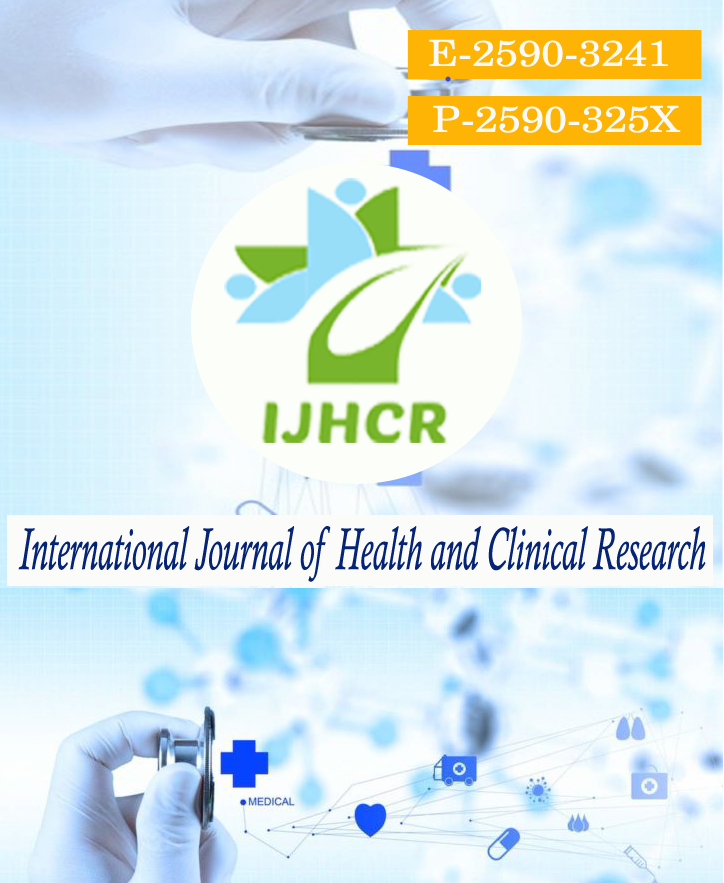
International Journal of Health and Clinical Research
Yazarlar: Arpana Singhal, Rekha Singh, Abbas Ali, Anupama Kayal, Raja Ram Basira, Gajanand Verma
Konular:-
Anahtar Kelimeler:Comorbid,Mental evaluation,Neurological
Özet: Background and aims: The Coronavirus disease 2019 (COVID-19) is a potentially serious condition caused by a novel coronavirus termed as “severe acute respiratory syndrome coronavirus-2. The SARS-CoV-2 virus affects both central and peripheral nervous systems resulting in varied neurological presentations. This study assesses the neurological manifestations in COVID -19 patients in the recovery phase. Method: This retrospective study was conducted on 401 patients who were discharged from Government RDBP Jaipuri a hospital Jaipur with COVID negative reverse transcription–polymerase chain reaction (RT-PCR) test for SARS-CoV-2. An individual telephonic interview was conducted after 21-28 days post discharge in post COVID period to assess the neurological manifestations by a self-designed questionnaire.Results: In this study conducted from 10th September 2020 to 10th October 2020, 59 patients refused to participate in the study. So out of 342 patients, 238 (69.60%) were males and 104(30.40%) were females. We found post COVID symptoms with Fatigue - 57.8% ,Myalgia 29%,Anosmia- 41.5%,Dysguesia – 35.9%, Headache – 41.0%,Memory loss 3.2%,Concentration difficulty – 18.7%,Sleep disorder – 26.9%, Psychiatric disorder- 18.12% , 01 patient reported with Right side thigh hematoma and 01 patient with Left side hemiparesis. 48 (14.03%) patients did not reported any of above symptoms, 124(36.25%) patients had one or two symptoms and 174 (58.8%) had three or more persistent symptoms.Conclusion: Various neurological presentations occur in the recovery phase of elderly comorbid COVID 19 cases. This recommends a thorough mental evaluation and neurological work up for complete rehabilitation of these patients.